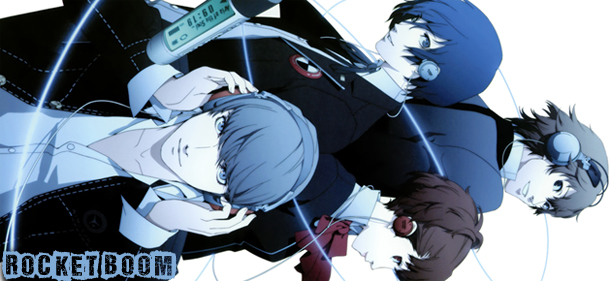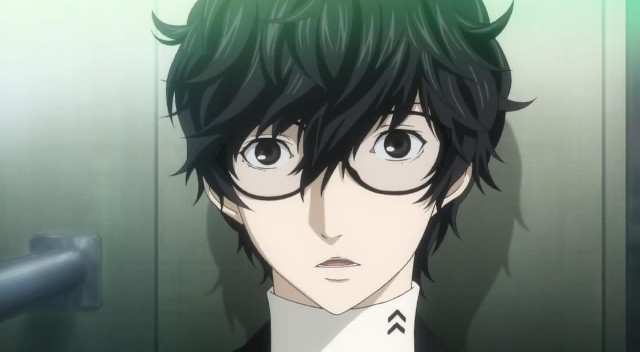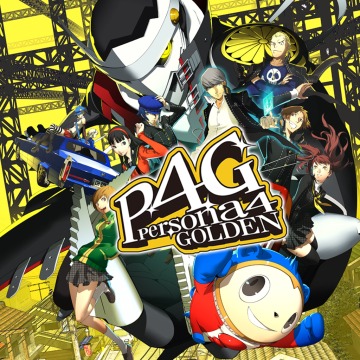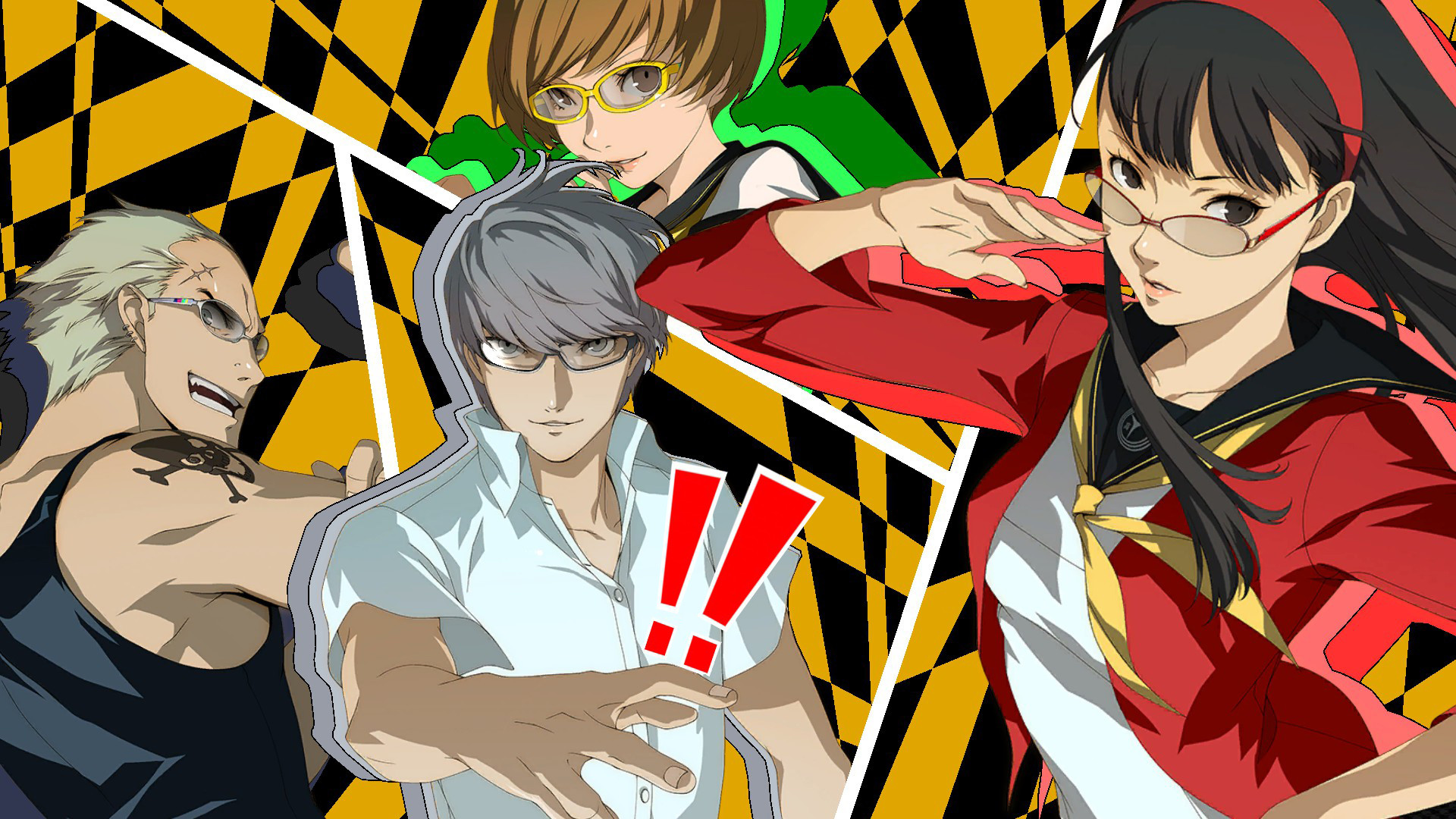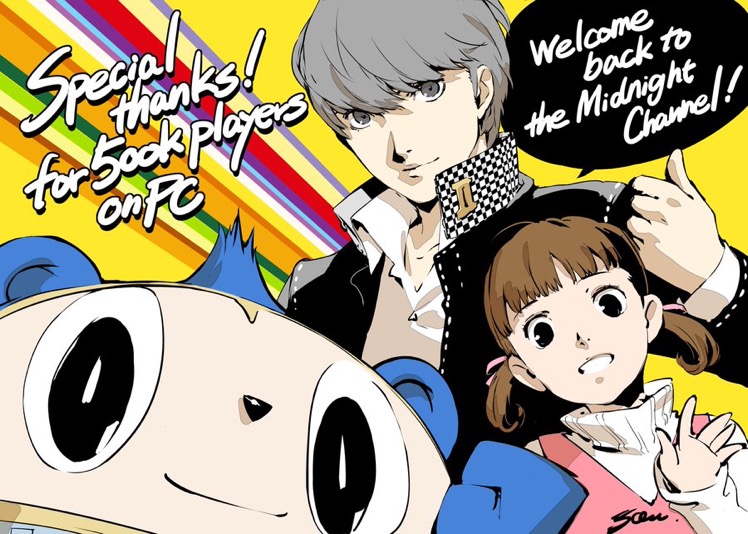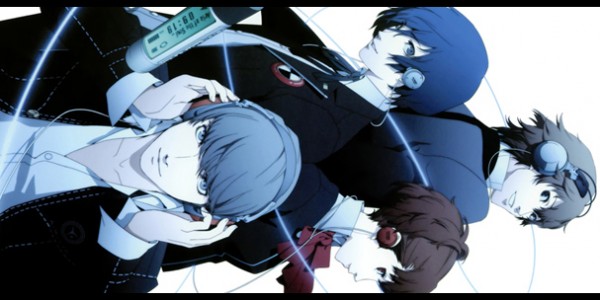
Welcome to the second edition of Rocket Boom (you can view the first edition here), where I’ll be taking a look at the other half of the Shin Megami Tensei: Persona series. After the slightly unorthodox soundtracks of Persona 3 and 4 (how many JRPGs have you seen that have J-Pop and Rap music as the battle themes?), you may be wondering what the first two games in the series can deliver. Well, wonder no longer as we take a look at the series’ origins.
First up: Persona.
Alongside Hidehito Aoki and Kenichi Tsuchiya, Shoji Meguro worked hard on putting together the soundtrack for the PS1 game, Revelations: Persona. As his first project as a composer, he needed to get it right, and that’s exactly what he did. The game’s soundtrack was well recieved, and with the release of the PSP version, he decided to have some fun with it. Composing and arranging a large number of new tracks, he also sought out the help of a vocalist we’ve seen before. Making a return to the series after her vocal work on Persona 3‘s soundtrack, Yumi Kawamura did a great job once again.
Dream Of Butterfly
The first thing you hear after starting the game up is, of course, the opening theme. Both the song’s title and opening lines reference a story from a book written by the ancient Chinese philosopher Zhuangzi. The story goes that Zhuangzi had a dream where he was a butterfly, which was so realistic that when he woke up, he got a shock. He was confused. Was he Zhuangzi, who had dreamt he was a butterfly, or a butterfly dreaming that he was Zhuangzi? This caused him to question the nature of reality.
The Persona series has often made use of this butterfly motif, in the form of the spiritual guide Philemon in Persona and Persona 2, and in the form of glowing blue butterflies (said to be a manifestation of Philemon) in Persona 3 and 4. In any case, it’s a very interesting track whose lyrics tell a dream-like story in both English and Japanese. The Japanese lyrics speak of someone accepting their weakness, and moving on with their life, while the English lyrics tell a very similar story, but in a more simplistic way. Both add their own meaning to the song, which makes it a treat for those who have knowledge of both languages. Even if you don’t though, you still get to hear one part of the story as the song pushes onwards, and it makes for a good listen.
[youtube id=”thcizZhHOYw” width=”600″ height=”350″]
A Lone Prayer
To give the PSP version a fresh sound, Shoji gave the game’s battle theme a complete overhaul. Replacing the simple tune that was featured in the original PS1 game, we’ve now been presented with a fully vocalised song which alternates its pace a little as it goes. Kawamura’s strong vocals accompany the tune, which favour English lyrics, with a few Japanese sentences mixed in seamlessly. A Lone Prayer is a little more minimalistic than the battle themes featured in Persona 3 and 4, but no less catchy (especially when Kawamura busts out the chorus) or effective.
[youtube id=”bJ7PgoG-ytU” width=”600″ height=”350″]
Bloody Destiny
No RPG is complete without unique boss battle music, and Shoji didn’t disappoint us with Persona‘s track. Kawamura steals the show as her strong vocals take on a dark tone, similar to that of A Lone Prayer, while a simple yet ominous beat lurks in the background. Bloody Destiny really suits the game’s atmosphere well, both in name and in sound. Accompanying the game’s sporadic boss fights, the song always creates a feeling of tension.
[youtube id=”wis5mqH6sXM” width=”600″ height=”350″]
Voice
Persona‘s ending theme takes a lighter approach than most of the soundtrack, with some simple beats accompanying Kawamura’s casual vocals. It’s mostly in Japanese, but it’s a song whose lyrics are full of hope, speaking of a bright future. After the game’s dramatic ending, Voice is an effective way to relieve the tense atmosphere, and is a nice change of pace from the game’s usual dark themes.
[youtube id=”gMjkrFWruS0″ width=”600″ height=”350″]
Next up: Persona 2.
Persona 2 is an unusual game for a couple of reasons. Firstly, the game itself was released in 2 parts, with the first being called Persona 2: Innocent Sin, and the second being called Persona 2: Eternal Punishment. The games were released exactly one year apart, and are a direct sequel to the original Persona game. Eternal Punishment‘s story begins a few months after Innocent Sin, but is set in a visually identical parallel world where the events of the game never happened. Despite this, some characters from Innocent Sin play major roles. Secondly, Innocent Sin was never released outside of Japan, leaving English speaking fans with only half of the game to play. However, just like the original Persona, the games have received PSP ports. After the Japanese release, the PSP version of Innocent Sin was picked up localisation, and is now available worldwide (to the joy of many fans). The PSP version of Eternal Punishment was released in Japan during May this year, and will probably make its way over here as well.
Notably, Persona 2 is the only Persona game where Shoji was absent as the composer. With the release of the PSP version of Innocent Sin though, he was given partial control. and decided to take a different approach to that of Persona. Rather than create an entirely new soundtrack, as in Persona, the game’s sound team decided to give players a choice. Players can choose to listen to either a remastered version of the game’s original soundtrack, or a completely rearranged version which adds some extra elements.
Part 1: Innocent Sin.
Unbreakable Tie
Asami Izawa and Lotus Juice (returning to the series after his absence in the PSP version of the previous game) take on the vocal duties in this energetic opening to Innocent Sin. Lotus Juice’s trademark rapping sets the pace, accompanied by some smooth changes in pace, where Izawa’s soft vocals push through. The song is boosted by some catchy guitar riffs, before returning to its hectic pace, as the two work together to effectively deliver their lyrics. There’s some very minimalistic use of piano throughout the song, and this lends it a little bit of extra feeling, particularly at the end.
[youtube id=”GFuO626eug0″ width=”600″ height=”350″]
Battle
It’s random battle time, and Innocent Sin‘s combat was accompanied by this fast paced, energetic track. There’s a range of different sounds being used here, some high pitched and some quite low and they’re actively switched between to create an interesting, catchy tune. It has something of an electronic feel to it, with a simple guitar backing to give it some extra punch.
[youtube id=”UN5EXrDFK3w” width=”600″ height=”350″]
Boss Battle
Although it starts out with a heavy tune, this boss music actually walks on the lighter side, surprisingly. While not as fast paced as the battle music, it has some similarities, such as the repeating notes which feature throughout the track. It makes heavier use of guitar, however, aiming for a rougher feel. It’s not your typical piece of boss music, but it actually feels a little like a heavier, more complex version of the battle theme at times. It pumps away in the backround as you fight, and is catchy in its own way.
[youtube id=”ILcv7hGr35s” width=”600″ height=”350″]
Maya’s Theme
No lyrics here, just a catchy upbeat tune which serves as Maya’s theme. She’s the main character in character in Eternal Punishment (a rare female protagonist!), but here she’s just one of the gang. Maya’s Theme suits her perfectly, as she’s always telling the other party members to think positively. You always know that when this rocking tune starts up, you’ll be getting a blast of her positive vibe. Some simple guitar is matched with electronic sounds, for a track that has a cheerful feel to it, something that was definitely needed in an otherwise dark game.
[youtube id=”eaQ6F4XFkbA” width=”600″ height=”350″]
Part 2: Eternal Punishment.
Opening
Eternal Punishment‘s opening is quite simple and minimalistic compared to those seen in the other entries of the series. Of course, this is partly because the PSP version has not been released outside of Japan, and so its new opening is unavailable for comparison to the more modern stylings of Innocent Sin‘s. The original opening is a good piece of music nevertheless, with a suitably dark sound to it, and some light use of operatic vocals to add to the atmosphere. The high pitched sound of a triangle being struck is surprising, yet fitting, and punctuates the beat as the song progresses.
[youtube id=”M8wPZvi9Ghw” width=”600″ height=”350″]
Battle
Battles in Eternal Punishment brought with them an energetic tune which is easy on the ears, which is pretty much all you could have wanted from a piece of background music that you’d be hearing so often. It has a much lighter sound to it than what featured in Innocent Sin, and it has its own charm, with a simple background tune that is augmented by some sharp beats.
[youtube id=”fmn5QMRkvxo” width=”600″ height=”350″]
Boss Battle
It’s time for a boss battle, and that means epic music to match. Whether your opponent was human or demon (perhaps a bit of both), this ominous track – with its great use of piano – was a strong background for your epic battle. The energetic backing keeps flowing throughout the track, with an eventual climax and temporary release towards the middle.
[youtube id=”VAC5ukaXsDc” width=”600″ height=”350″]
Change Your Way
Change Your Way is Eternal Punishment‘s ending theme and a light piece of music, featuring uplifting lyrics sung by Elisha La’Verne, who wrote them with the game in mind. According to La’Verne, the song is about people always having the power to get out of bad situations. It was based upon her experiences as she grew up in London, witnessing homeless people on the streets. It fits nicely with the game’s fairly happy ending, and reflects the series’ emphasis on people’s ability to change themselves.
[youtube id=”u3H9kNiLLVM” width=”600″ height=”350″]
The finish: That’s it for the Persona series, as well as this second edition of Rocket Boom. I hope you’ve enjoyed this look at the excellent music featured in this JRPG series. Like Persona 3 and 4, each of the above games has an extensive soundtrack, with many more great pieces of music than what I’ve covered in this two part feature. Persona 4 remains the latest entry in the series, but we can look forward to its PlayStation Vita version next year, which adds new content (including new music). Thanks for listening!
Bonus: Long before Persona 4 received an anime adaptation, or Persona: Trinity Souls was conceived, Atlus released a ‘trailer’ for what might have been a Persona 2 adaptation. It was released alongside the English version of Eternal Punishment, back in November of 2000, and you can view the five minute long production below:
[youtube id=”Kr6HIFaGdaU” width=”600″ height=”350″]


